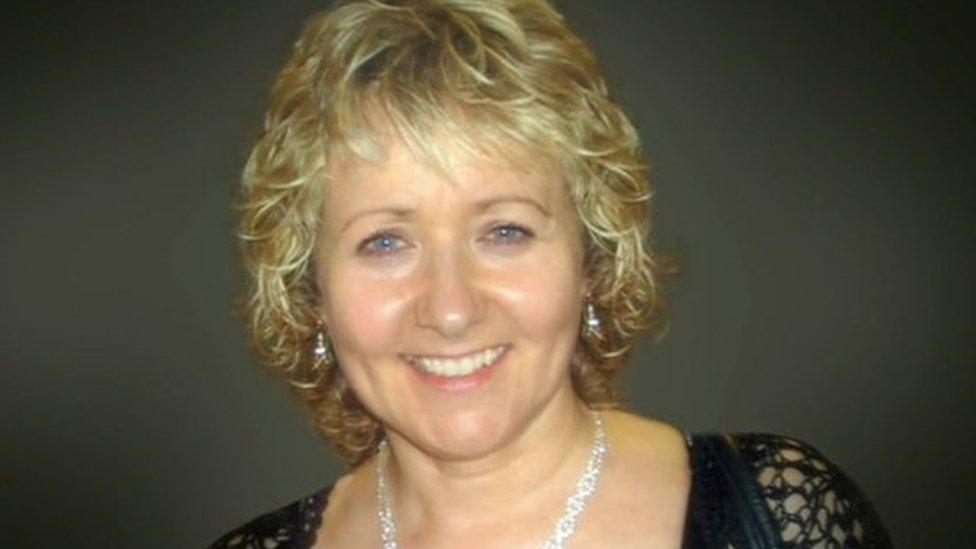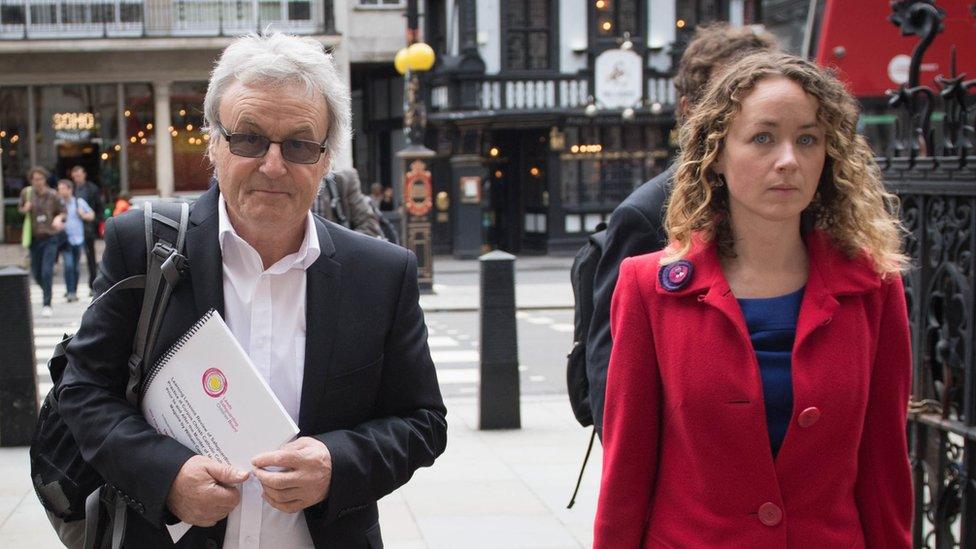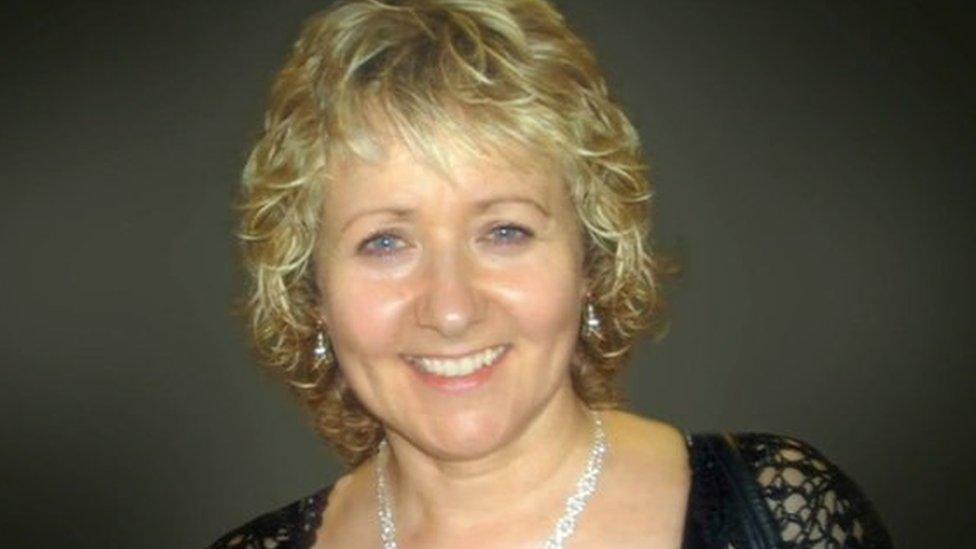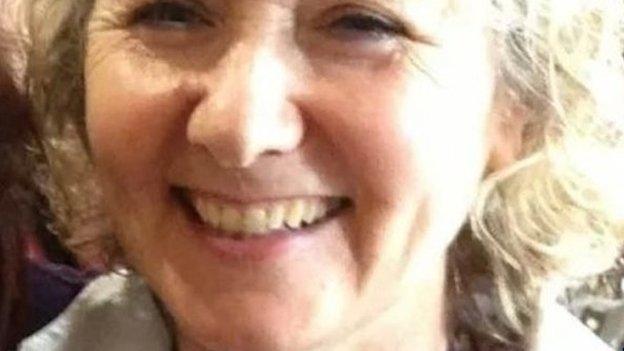Ann Maguire inquest: Family launch review over evidence
- Published

Ann Maguire had taught Spanish at Corpus Christi Catholic College for more than 40 years
The widower and children of a teacher murdered by a student have challenged a coroner's decision not to call other school pupils as inquest witnesses.
Ann Maguire, 61, was stabbed to death by Will Cornick at Corpus Christi Catholic College, Leeds, in April 2014.
The High Court was told it was unlawful for pupils who had contact with Cornick immediately before the murder not to give evidence.
The request was opposed by others including the sisters of Mrs Maguire.
Live updates and more stories from Yorkshire
One of Mrs Maguire's sisters, an experienced teacher, was among those concerned about the impact giving evidence might have, said Cathryn McGahey QC for the assistant West Yorkshire coroner Kevin McLoughlin.
Mrs Maguire's husband Don, her children and nephews want Mr Justice Holroyde to order the coroner to reconsider the decision.
A full inquest is scheduled to begin at Wakefield Coroners' Court in November.
Cornick, who was 15 at the time at the time of Mrs Maguire's death, was sentenced to a minimum of 20 years in 2014 after admitting murdering the Spanish teacher of more than 40 years.

Don Maguire and his daughter Kerry attended the hearing at the High Court in London
The coroner had previously concluded the "risk of psychological harm outweighed the potential benefit" of calling the pupils, particularly given the length of time since the killing.
Nick Armstrong, counsel for the family, told the court it was the only occasion on which a teacher had been killed by a pupil in a British classroom and his clients wanted to make sure "all the lessons that can be learned from this enormous tragedy are learned".
He said it was a matter "of very substantial and current public interest" at a time when there were reports of a "spike" in incidents of knives in schools.
The coroner had accepted the inquest should address school rules and policies about weapons in school, reporting the presence of weapons in school, and how these had been communicated to students, Mr Armstrong said.
Counsel told the court the undisputed evidence was over the three hours before the murder, as Cornick told other students of what he intended to do, and showed a number of them the knife, yet it was not reported to a member of staff prior to the killing.
Transcripts of pupil interviews with police at the time did not address school policies and the pupils' knowledge of them. So there would be no evidence before the inquest concerning the knowledge of policies from the student side, Mr Armstrong added.
Pupils - who are now adults - had not been asked if they wanted to give evidence and no consideration was given to using any vulnerable witness safeguards available, he continued.
The coroner's decision was "based on limited and generic evidence about vulnerability generally" and was unlawful, Mr Armstrong concluded.

Will Cornick is serving a life sentence for stabbing Ann Maguire in 2014
Ms McGahey, said the decision the assistant coroner made was one lawfully open to him.
The coroner was well-placed to make the decision as he had available to him far more material than the court, she said.
The evidence of teaching staff, who had experienced hundreds of students of varying ages, was likely to be far more reliable and useful than a small number of former students, she added.
"The key issue was the usefulness of the evidence that these students could give," she told the court.
"The coroner was entitled to reach the view that the benefit of calling the students would be limited."
The judge said he would give his decision at a later date.
In November 2016, a report by Leeds Safeguarding Children Board said no-one could have predicted or prevented Mrs Maguire's murder.
- Published18 May 2017

- Published14 March 2017

- Published8 November 2016

- Published19 October 2015

- Published3 November 2014

- Published29 April 2014
